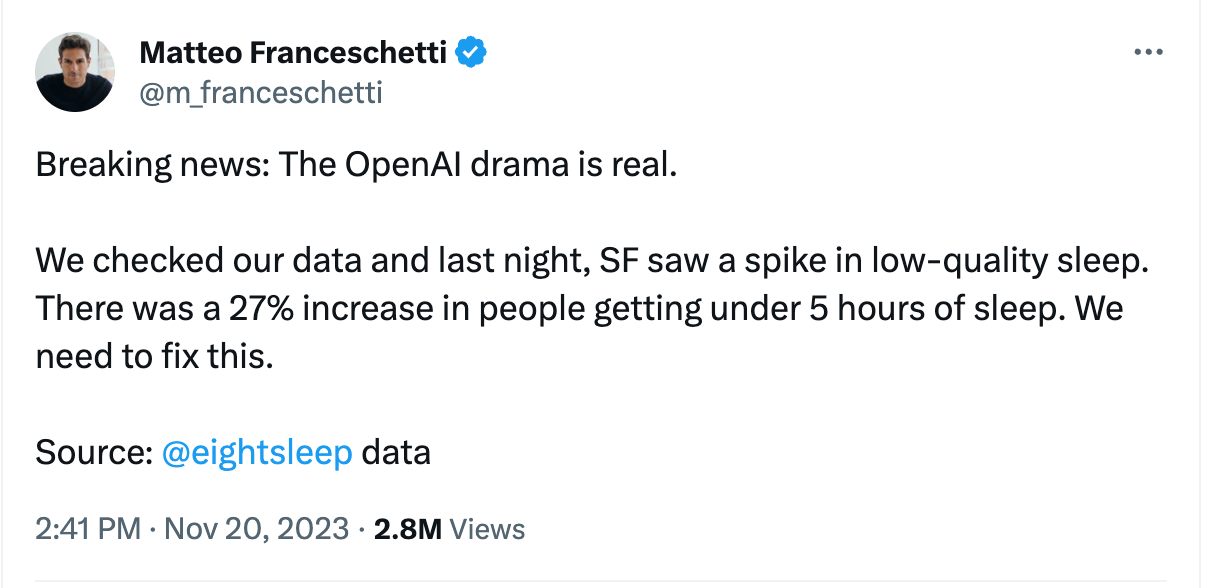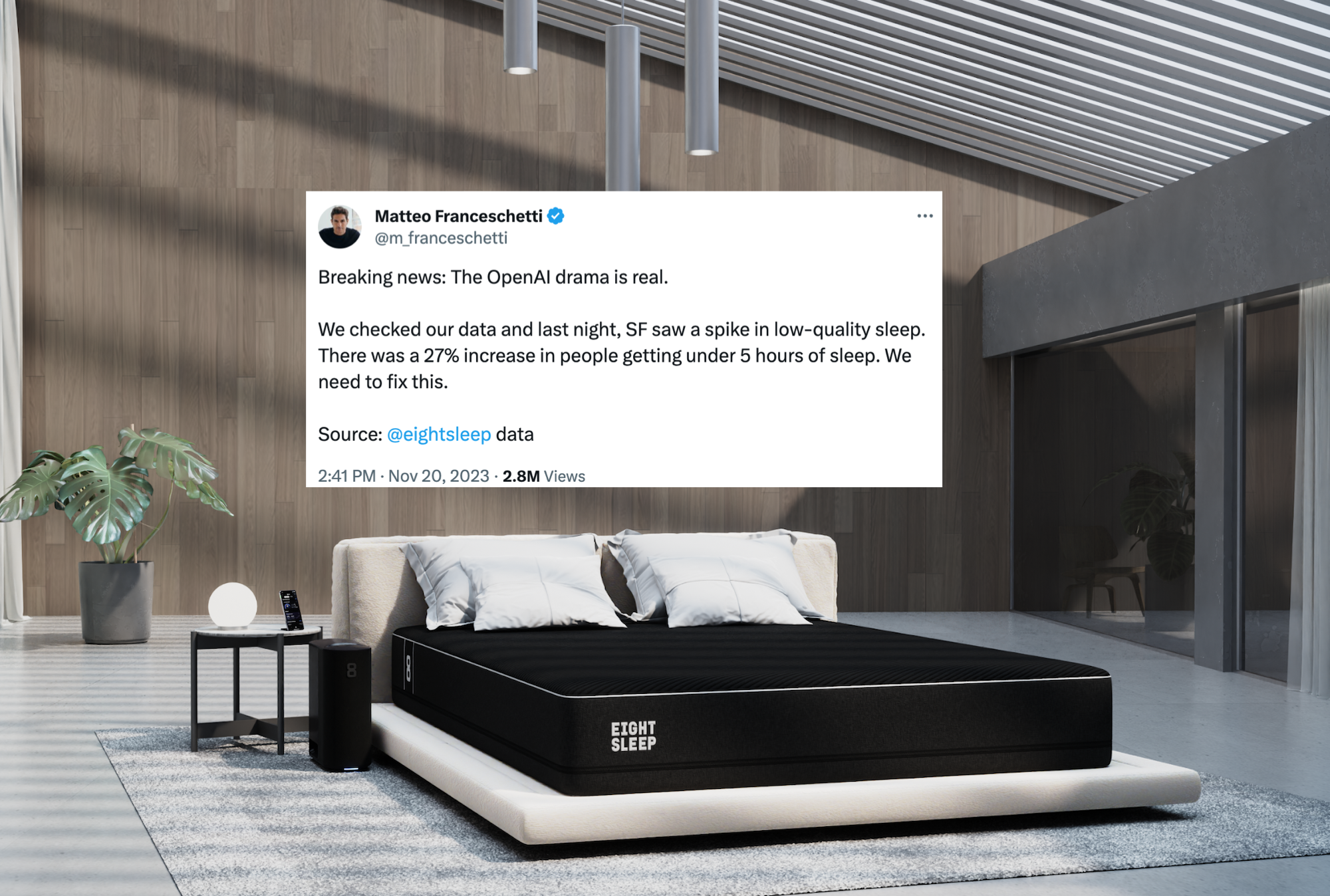Subscribe
Is the OpenAI CEO drama causing a public health crisis in San Francisco? The CEO of Eight Sleep, a buzzy smart mattress topper popular with tech workers thinks: Possibly!
Matteo Franceschetti, the CEO of Eight Sleep, which makes the $2,295 smart mattress topper “The Pod” tweeted: “Breaking news: The OpenAI drama is real. We checked our data and last night, SF saw a spike in low-quality sleep. There was a 27 percent increase in people getting under 5 hours of sleep. We need to fix this. Source: @eightsleep data.”

Franceschetti’s tweet reminds us that The Pod is essentially a mattress with both a privacy policy and a terms of service, and that the data Eight Sleep collects about its users can and is used to further its business goals. It’s also a reminder that many apps, smart devices, and apps for smart devices collect a huge amount of user data that they can then directly monetize or deploy for marketing or Twitter virality purposes whenever they feel like it.
The Pod does “intelligent cooling and heating for any bed,” and learns and adjusts the temperature of the bed based on your sleep habits, tracks your sleep and vital signs while you sleep, and gives you a “Sleep Fitness Score” based on your quality, routine, and time of sleep. As someone who often does not sleep well, The Pod is a compelling product that I cannot currently afford.
Quickly, to get it out of the way: Eight Sleep’s data does not and cannot actually show that “San Francisco” had a spike in low-quality sleep. What it shows is that people in San Francisco who have purchased a $2,295 smart mattress topper and have not successfully opted out of Eight Sleep’s analytics—a group that surely overindexes on tech workers—slept less Sunday night.
The top of Eight Sleep's terms of service states "At Eight Sleep we pledge to respect your privacy and to keep your data safe. We only collect data that helps us improve our products and services." Both Eight Sleep’s privacy policy and terms of service then go on to note that the company collects a huge amount of data that can be used for a wide variety of purposes, including marketing, retargeting, and scientific studies. It can also, apparently, be used by the CEO for commenting on the day’s tech news.

Specifically, the company notes that “data about your sleep activity is transferred from your Device to our servers” every time the Pod’s app syncs with the Pod. Certain features on the device also require location data “including GPS signals, device sensors, Wi-Fi access points, and cell tower IDs.” This data is then used to give users personalized sleep recommendations, but they are also “used in research to understand and improve the Eight Device and Eight Service,” “to enforce the Eight Terms of Service,” and, critically, “de-identified data that does not identify you may be used to inform the health and scientific community about trends; for marketing and promotional use; or for sale to interested audiences.”
The terms of service add that it "may share or sell" this data.
There is an incredible wealth of research that shows that de-identified data can sometimes be tied back to specific users, or can, at the very least, be used in a way that users don’t expect. Whitney Merrill, a privacy expert and information security lawyer, tweeted that she is reconsidering getting an Eight Sleep Pod because of Franceschetti’s tweet: “I’m sure it’s aggregate and anonymous, but it just feels creepy. I don’t want my health information, like sleep data used this way.”
The terms of service adds that personally identifiable information can be shared with law enforcement if they receive a warrant or subpoena, which is common in tech company terms of service, but a reminder that generally mattresses don’t collect data that can be used in legal proceedings.
Eight Sleep’s website shows that the company is regularly conducting and publishing scientific studies about the efficacy of its products. Many of those studies are done in more traditional scientific ways where participants are recruited and understand that they are part of a study. Eight Sleep did not immediately respond to 404 Media’s request for comment.


